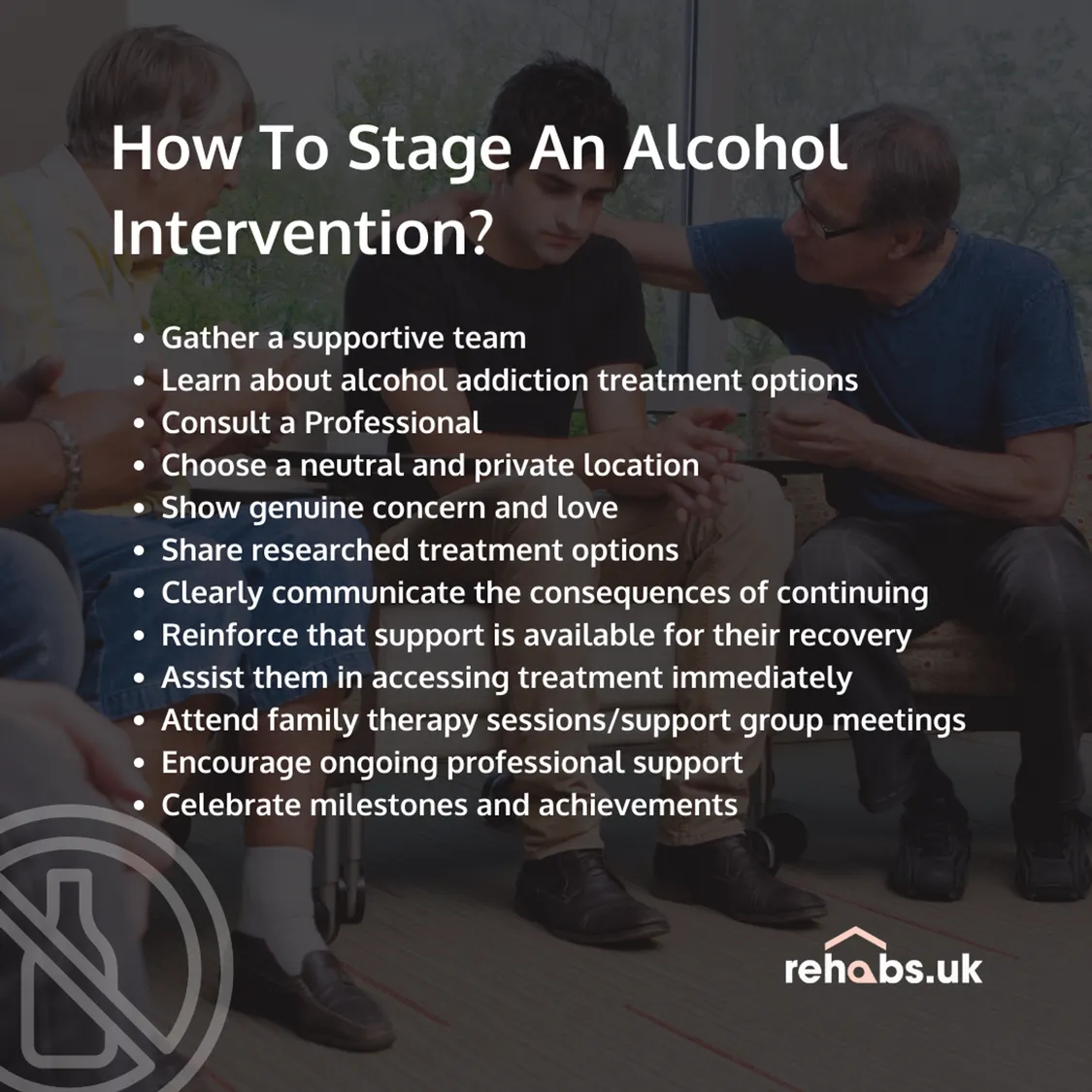07 Nov 2023
Helping a loved one struggling with alcohol misuse can be an incredibly challenging and heart-wrenching journey. The prevalence of alcohol dependency in the UK is staggering, making it a pressing issue that affects countless individuals and their families. According to recent statistics, alcohol-specific deaths in the UK have been on the rise, with over 7,000 people losing their lives due to alcohol-related causes each year. Additionally, it is estimated that over 1.5 million people in the UK are living with an alcohol dependency. These numbers emphasise the urgent need for effective interventions and support.
Recognising the signs of alcoholism in a loved one
Recognising the signs of alcoholism is the crucial first step in helping your loved one. It's essential to be aware of the symptoms and behaviours that may indicate a problem, such as excessive drinking, withdrawal from social activities, or changes in their overall demeanour.
What does it mean to stage an intervention for alcohol?
Staging an intervention involves confronting your loved one about their alcohol addiction in a caring and structured manner. This can be done with support of an addiction interventionalist service to maximise a successful outcome.
What is a brief intervention for alcohol?
A brief intervention is typically conducted by a medical professional and is done in an institutional setting.
Alcohol intervention strategies and tips for families and loved ones
Before embarking on an intervention, it's essential to seek guidance from a professional. This section will provide valuable strategies and tips for families and loved ones to ensure the intervention is conducted as effectively and compassionately as possible.
When to stage an alcohol intervention
- You have already spoken to them about their drinking, but it has been ignored.
- You are worried about their health due to alcohol misuse.
- You are becoming fearful of their behaviour towards themselves or others.
- Their personality or actions have changed drastically, and it is affecting their daily life and relationships.
Deciding on the intervention method
Deciding how to stage the intervention is a crucial step.
How to write an intervention letter for alcohol
Writing an intervention letter is an important component of the process.
What not to do or say
It's equally vital to know what not to do or say during an intervention.

Treatments available for alcohol addiction
Before staging an intervention, it's essential to be informed about the treatment options available.
Cognitive Behavioural Therapy
Cognitive Behavioural Therapy (CBT) is an evidence-based approach that has proven effective in treating alcohol addiction. Online or phone-based therapy
In today's digital age, online or phone-based therapy is a convenient option for those seeking help.
Alcohol detox
Detoxification is often the first step in alcohol addiction treatment.
Inpatient or outpatient rehab
Understanding the difference between inpatient and outpatient rehab is essential when considering treatment options. Learn what each option entails and what to expect from these programmes.
What if a loved one doesn't want help?
If your loved one is resistant to getting help, this section offers guidance on how to navigate this challenging situation and support them in entering rehab.
Support for family members
Finally, it's crucial to remember that you are not alone in this journey. Support is available for family members and loved ones who are also affected by a loved one's alcohol addiction. In the battle against alcohol addiction, knowledge and understanding are our greatest allies. By following these steps and seeking professional guidance, you can be a source of hope and help for your loved one on their path to recovery.
